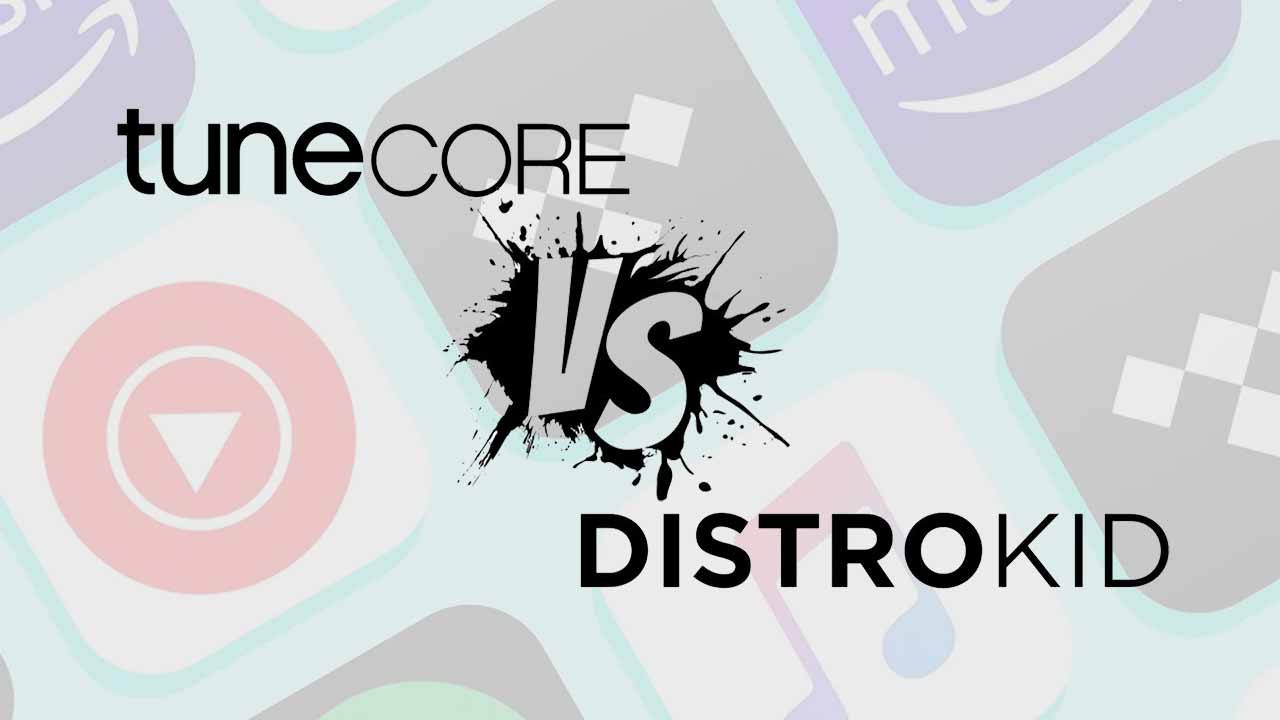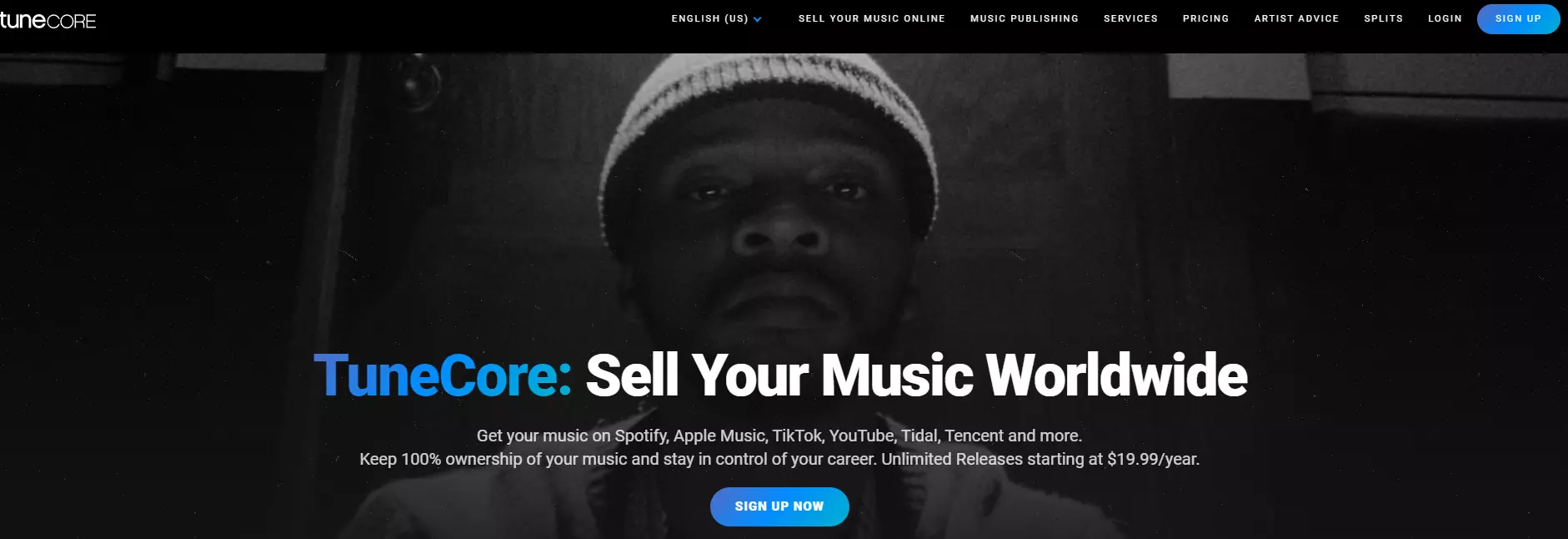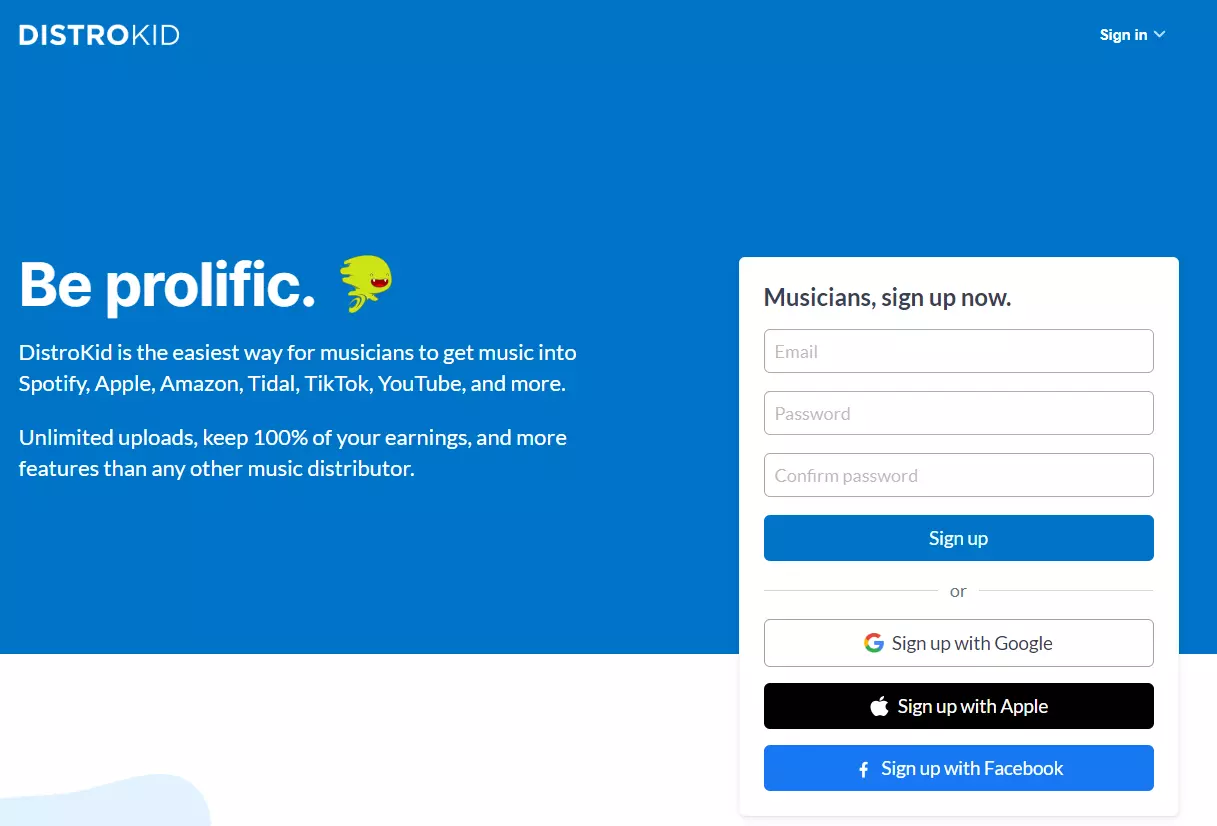
In the digital age, independent musicians have more opportunities than ever to share their music with the world. With the rise of digital music distribution platforms like TuneCore and DistroKid, artists now have the ability to distribute their music to major streaming services and online stores with ease.
However, choosing the right platform can be a daunting task.
In this blog post, we'll compare TuneCore and DistroKid to help you make an informed decision about which platform is best suited for your music distribution needs.
What is TuneCore?

TuneCore is a digital music distribution service that empowers artists to upload their music and disseminate it across an extensive range of online music stores and streaming platforms like Spotify, Apple Music, Amazon Music, and others.
Since its inception in 2005, the platform has emerged as a leading solution for independent artists aiming to share their music without the backing of major record labels.
A notable characteristic of TuneCore lies in its flat fee structure—artists pay a predetermined amount to distribute their tracks or albums, enabling them to retain 100% of their music royalties from sales and streams.
This departure from the traditional record label model, where labels often claim a significant portion of earnings, has garnered increasing popularity among musicians seeking greater control over their revenue streams.
Key Features of TuneCore
Here are some key features of TuneCore:
1. Comprehensive Distribution: TuneCore allows artists to distribute their music to all major streaming platforms and digital stores worldwide. From Spotify and Apple Music to Amazon Music and beyond, TuneCore ensures broad reach for artists' music.
2. Transparent Pricing: TuneCore operates on a pay-per-release model, where artists pay a one-time fee per release. There are no annual fees or recurring charges, making it a straightforward option for independent artists.
3. Artist Control: TuneCore gives artists full control over their music and earnings. Artists retain 100% ownership of their music and have access to detailed analytics to track sales and streaming performance.
4. Additional Services: In addition to distribution, TuneCore offers a range of supplementary services, including music publishing administration, YouTube monetization, and sync licensing opportunities.
What is DistroKid?

In essence, DistroKid functions as a digital distributor, facilitating the transmission of your music, cover art, and data to prominent streaming platforms such as Spotify, Apple Music, TikTok, Pandora, Amazon, YouTube, Tidal, and more. Upon release, listeners can discover you and your music seamlessly on these platforms.
Founded in 2013 by Philip Kaplan, DistroKid entered the scene nearly a decade after established competitors like TuneCore and CD Baby. Despite being a relatively new startup, DistroKid hit the ground running and swiftly emerged as a formidable competitor in the realm of digital music distribution.
Features of DistroKid
Here's what sets DistroKid apart:
1. Unlimited Distribution: DistroKid offers unlimited distribution for a flat annual fee. Artists can upload as much music as they want without incurring additional costs, making it an attractive option for prolific musicians.
2. Quick Distribution: DistroKid boasts rapid distribution turnaround time, with music typically appearing on streaming platforms within 1-2 days of upload. This allows artists to release new music quickly and efficiently.
3. Collaboration Tools: DistroKid offers features like "Teams" that allow artists to split earnings with collaborators seamlessly. This is particularly useful for bands or artists working with producers, songwriters, or session musicians.
4. Revenue Splitting: DistroKid's "HyperFollow" feature generates smart links for each release, enabling artists to share their music and pre-save links with fans. This helps maximize engagement and streamline the release process.
Tunecore Vs Distrokid: How to Choose the Right Platform?
1. Pricing Structure: If you prefer a pay-per-release model and value transparency in pricing, TuneCore may be the better option. However, if you release music frequently and prefer a flat annual fee, DistroKid's unlimited distribution plan might be more appealing.
2. Distribution Speed: If quick distribution turnaround time is crucial for your release strategy, DistroKid's rapid distribution may be advantageous. TuneCore also offers timely distribution but may not be as fast as DistroKid.
3. Additional Features: Consider the supplementary services offered by each platform and whether they align with your needs. TuneCore's comprehensive suite of services may be appealing if you're looking for music publishing administration or sync licensing opportunities. Conversely, DistroKid's collaboration tools and HyperFollow feature may be more enticing if you prioritize ease of use and engagement with fans.
4. Artist Control and Rights: Both TuneCore and DistroKid prioritize artist control and rights retention. Evaluate which platform offers the level of control and ownership that aligns with your preferences and priorities as an artist.
Final Thoughts: Bandcamp Vs Spotify
TuneCore and DistroKid are both reputable platforms that offer valuable services for independent musicians. The best choice ultimately depends on your individual needs, preferences, and goals as an artist.
Whether you prioritize pricing transparency, distribution speed, additional features, or artist control, carefully consider the offerings of each platform to make an informed decision that will support your music career aspirations.

